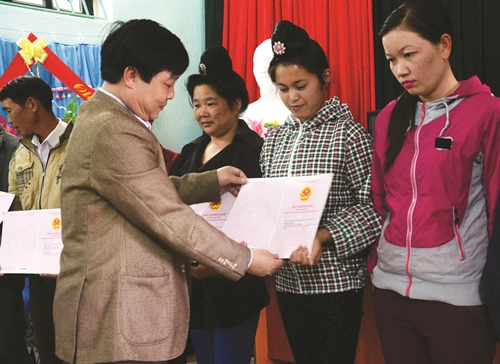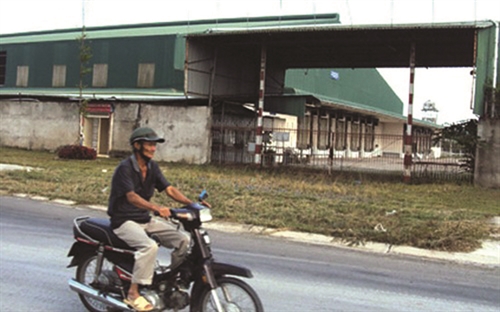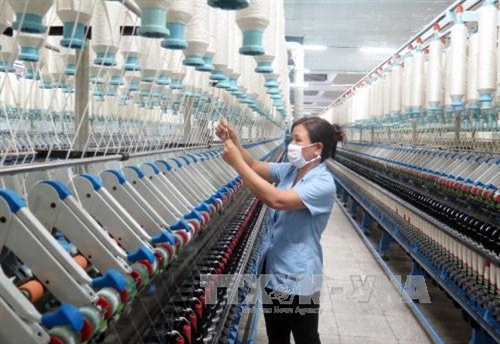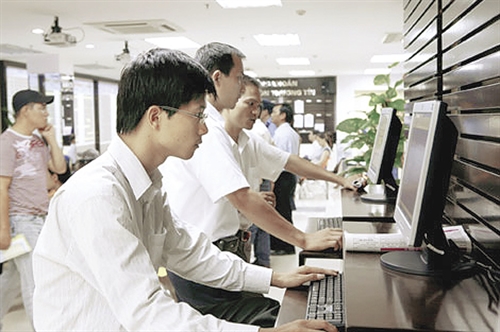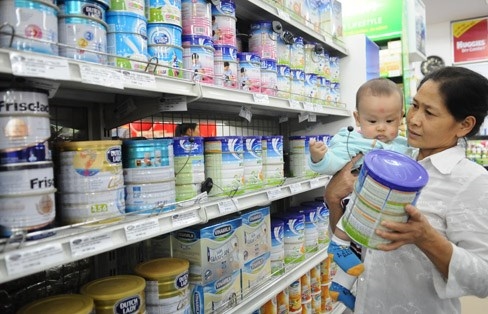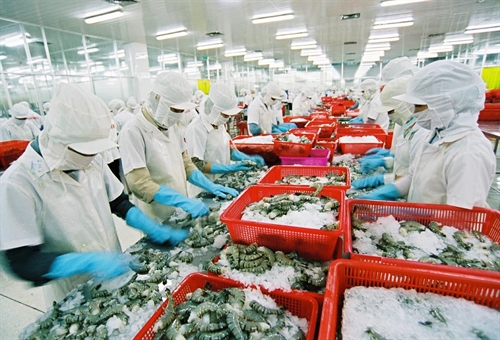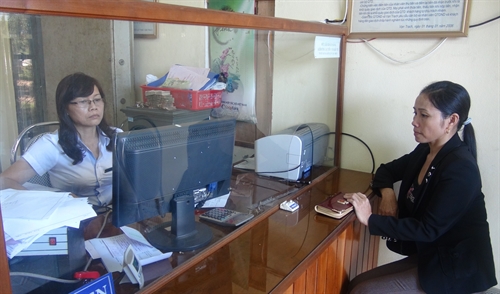Vietnam and the European Union (EU) wrapped up negotiations for a free trade agreement in late 2015. Along with the Trans-Pacific Partnership (TPP) Agreement, the EU-Vietnam Free Trade Agreement (EVFTA) will likely exert great impacts on Vietnam’s legal system in the coming time.
The Vietnam Chamber of Commerce and Industry (VCCI), with the aid of the British Embassy to Vietnam, has recently launched a series of reviews on Vietnam’s current laws against EVFTA commitments, aiming to enhance conformity with the EVFTA while ensuring benefits for local businesses.
Intellectual property (IP) law
Vietnam is now applying a system of IP regulations in line with the country’s IP commitments within the framework of the World Trade Organization (WTO) Agreement on Trade-Related Aspects of Intellectual Property Rights (TRIPS). However, being one of top IP product exporters in the world, the EU has high requirements on IP right protection standards and enforcement measures.
At a meeting held early this month to consult stakeholders on the review findings, Nguyen Thi Thu Trang, director of the VCCI Center for WTO and Economic Integration, said Vietnam’s IP law was largely compatible with the EVFTA commitments. Compatibility can be seen in all three major institutions of IP law, i.e., general principles on IP protection, IP protection standards and border measures for IP rights enforcement. Regarding these issues, in principle, Vietnam will not need to make much revision to its current IP law.
However, according to Trang, the EVFTA does not simply require “protection” of IP rights but asks for “adequate and effective implementation” of the IP-related commitments. Meanwhile, many problems still exist in the practical enforcement of IP rights protection regulations in Vietnam, and at present, enforcement results remain far below requirements.
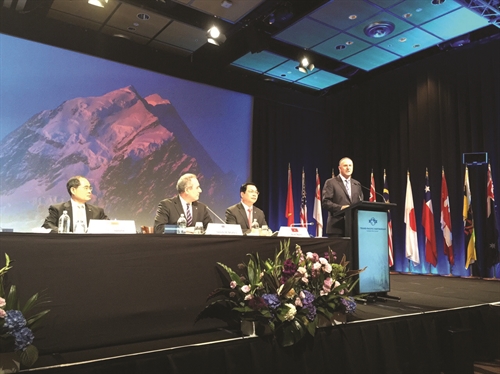 |
| New Zealand Prime Minister John Key addresses the ceremony of the TPP Agreement on February 4__Photo: VNA |
Hence, it was suggested by the VCCI that competent authorities focus their efforts on law enforcement work so as to ensure effective implementation of the country’s obligations under the EVFTA.
Agreeing with the VCCI, Pham Vu Khanh Toan from Pham & Associates law firm said Vietnam’s IP regulations were relatively complete, the problem lied actually in enforcement. The National Office of Intellectual Property under the Ministry of Science and Technology, the Market Control Department under the Ministry of Industry and Trade and other relevant units should step up inspection and control of the enforcement of IP regulations, so as to not only protect lawful rights and benefits of IP product owners but also strike a balance between individual and community interests.
Review results further pointed out that Vietnam’s current IP law still lacks regulations specifying four commitments concerning (i) exclusive right of performers and phonogram producers to make public their performances and phonograms; (ii) protection of 169 EU’s geographical indications listed in the FTA; (iii) extension of terms of pharmaceutical patents as compensation for delayed licensing; and (iv) presumption of authorship or ownership.
Inconsistencies between Vietnam’s law and EVFTA commitments are also seen in such issues as rights of performers and phonogram producers; protection against the circumvention of technological measures designed to protect IP rights and protection of rights management information; new standards on protection of industrial designs; and civil enforcement of IP rights.
According to the VCCI, revision will be needed to make Vietnam’s IP regulations completely conformable with the EVFTA. However, instead of devising separate documents only applicable to the EU, IP law revision should target also IP right holders outside the Union.
Specifically, the VCCI proposed amending Article 203 of the Law on Intellectual Property which requires right holders to bear the burden of proof, i.e., a person must produce evidence to prove that he is the holder of IP rights over a work. Instead, in the absence of proof to the contrary, a person whose name appears on a work will be presumed to be holder of IP rights over such work.
Another issue involves the right to protection against unfair competition. The current IP law acknowledges such right but restricts it within industrial property. Therefore, the VCCI proposed amending relevant provisions of the IP and competition laws in line with the Paris Convention for the Protection of Industrial Property that IP protection also covers protection against unfair competition.
Inconsistencies between the domestic law and treaties on IP also drew much concern. According to Nguyen Anh Ngoc, a lawyer from the local IP agency Investip, the Law on Intellectual Property should be added with a provision that in case of disparities between the domestic law and a treaty to which Vietnam has acceded, such treaty will prevail. This is an important principle that state management agencies and courts should always adhere to.
Regarding grounds for revocation of trademark registration, according to the EVFTA, a trademark will be deregistered if it is not put into “genuine use.” Under Vietnam’s current law owners of trademarks will be considered having put their trademarks into use in Vietnam once they have run commercials, maybe via the Internet, for such trademarks targeting Vietnamese customers. Hence, the question is what does “genuine use” means? This is a new concept which does exist in the European law but has not yet been mentioned in the TRIPS Agreement and Paris Convention. According to lawyer Quach Minh Tri from Baker & McKenzie Vietnam, such concept should be codified with clear and specific guidelines and explanations so as to facilitate the implementation of the EVFTA. In fact, it is not a rare case that a trademark owner still fails to produce or distribute his product in Vietnam even though the time limit of five years from registration has expired. In this case, does the trademark owner need to run TV commercials or create a Vietnamese-language website for the trademark? This question should be thoroughly answered by Vietnamese regulators.
Customs law
In another meeting releasing the Report on Review of Vietnam’s Legal Framework against EVFTA Commitments on Customs and Transparency, the VCCI held that the domestic customs law is almost consistent with the country’s EVFTA commitments on investment and trade facilitation.
Vietnam has fulfilled its 29 commitments under the agreement, the report said, noting that two commitments have been partly satisfied. Four commitments on formalities for cooperation and exchange between Vietnam and the EU are outside the scope of domestic law.
Trang said two small requirements that Vietnam’s law remains inconsistent include non-discrimination against small and medium-sized enterprises (SMEs) in preferential customs formalities (priority regime) and each administrative paper to be submitted only once.
However, she said, Vietnam has changed its law when the nation acceded to the International Convention on the Simplification and Harmonization of Customs Procedures (Kyoto Convention). But the EVFTA requires Vietnam not only to adopt regulations on related matters but also to ensure practical efficiency of these regulations.
Regarding the issue of priority enterprises, commitments on formalities for priority enterprises require these formalities to be efficient, reduce costs and ensure predictability for importers and exporters, but in reality such enterprises still encounter numerous difficulties that have to be categorized into ten different groups for gradual removal.
The report pointed out the difficulty faced by SMEs in access to the priority regime due to regulations on annual import and export value quota. Other criteria like “hi-tech enterprise” and “importing goods for key projects” have created discrimination among related entities, failing to comply with EVFTA compulsory requirements. Hence, it proposes revision of the criterion on annual import and export value set out in Government Decree No. 08/2015/ND-CP to suit SMEs’ import and export capacity.
The EVFTA also requires the country’s customs to include domestic enterprises with good records of compliance with customs regulations in the list of priority enterprises. It seems that the country still fails to meet the requirement on facilitation for businesses with good compliance records. By July 2015, only 38 out of 50,000 entities involved in import and export activities had been eligible for the priority regime and they made up one-fourth of the country’s export value.
According to Pham Thanh Binh, a senior customs expert, the priority regime creates many advantages to businesses but requires the latter to satisfy strict conditions, especially awareness and sense of law compliance and professional business administration method.
He noted that the reduction of the import and export value is necessary but must be reasonable to avoid widespread priority.
Regarding the facilitation for importers and exporters, the report also points out that customs clearance formalities comprise not only customs procedures but also a series of specialized inspection procedures and other import and export services that are regulated by different specialized laws on quality inspection, food safety, quarantine and so on.
 |
| Conference entitled “TPP Agreement and Vietnam: from ratification to implementation” held on March 4 in Vinh Phuc province__Photo: An Dang/VNA |
According to Finance Ministry statistics, 30-35 percent of total import and export shipments are subject to specialized inspection and the time for carrying out specialized inspection procedures and other formalities (in addition to customs procedures) make up 72 percent of customs clearance time. In order to facilitate customs clearance, the time required for specialized inspection must be shortened.
The report proposes not only improving the customs law but also reviewing and revising specialized laws applicable to goods subject to specialized management to bring an end to the situation that goods of enterprises with good compliance records are still channeled into yellow or red lanes because of the requirement on risk management by type of goods.
Pham Thi Thanh Hien, a former customs official, said commitment contents have touched upon both customs and trade facilitation. She suggested the review should pay attention to functional agencies and those in charge of international trade activities like the Ministry of Industry and Trade and Ministry of Agriculture and Rural Development.
“To meet the EU’s requirements, Vietnam should have some focal points receiving and answering inquiries about customs, tax as well as trade regulations so that businesses do not have to approach so many agencies as at present,” Hien said, adding that a coordination mechanism between the customs sector and other ministries and sectors should be put in place.
With regard to the transparency issue mentioned in Chapter 18 of the EVFTA, the review results revealed that Vietnam’s law does not yet conform with its EVFTA commitments, mainly in law enforcement, such as the principle of law enforcement, formalities for law application to entities, counseling for and answering of questions of organizations and individuals. At present, Vietnam has no regulations on transparency in law enforcement.
In reality, the Vietnamese Government has placed importance to the facilitation of customs formalities and transparentization of law making and enforcement, issuance of administrative decisions and settlement of administrative complaints and lawsuits.
The report proposes that to meet the transparency requirement, the customs sector should focus on modernizing its work in association with providing information to serve the settlement of petitions and ensure law enforcement efficiency. Regular consultations between the customs sector and business community should be maintained.
The review of Vietnam’s legal framework against EVFTA commitments will provide policymakers with a basis for revising domestic law and pushing ahead the ongoing reform process in the country.- (VLLF)
